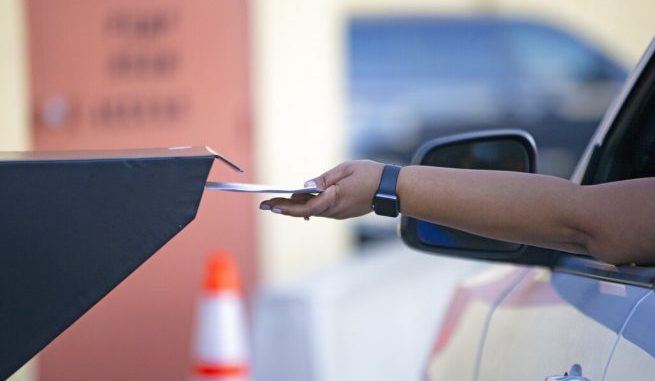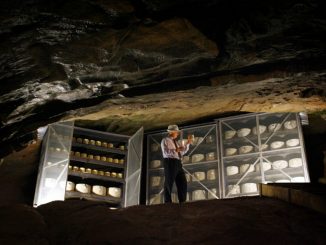

Broward County resident deposit ballots at the official dropbox during the general elections at the Lauderhill Office Supervisor of Elections on Tuesday, Nov. 3, 2020, in Lauderhill, Fla. (David Santiago/Miami Herald via AP)
OAN Newsroom
UPDATED 3:47 PM PT – Tuesday, November 3, 2020
As Americans are expected to flood polling stations on Election Day, many may be puzzled to know they do not directly vote for a presidential candidate. On Tuesday, Americans will vote for state electors in the electoral college instead, who will then cast a vote for the president.
48 states and Washington, D.C. all have a winner-take-all system, where electors cast their vote based on which candidate wins the most votes in the state.
Maine and Nebraska, however, have a congressional district system where they award candidates two electoral votes for winning the popular vote and the remaining electoral votes goes to the winner of each congressional district.
The electoral college is made up of 538 electors total, which are divvied up to each state by the number of representatives in the House and Senate. For example, California has 55 total electoral votes, Florida has 29 and Pennsylvania has 20. Each candidate must win at least half of the electors plus one, which comes out to at least 270 votes.
“Most people don’t know who their electors are, but they are real people,” said Justin Levitt, a professor at Loyola Law School. “They are, in fact, people who have already been chosen by their political party and those slates of electors are waiting until the decision on the popular vote in the state.”
The system was based on former President James Madison’s Virginia Plan at the 1787 Constitutional Convention. The plan called for congressional representation to be made up by a state’s population and later revised to give Congress the power to choose electors.
Madison reaffirmed his position in Federalist Paper 39 and was supported by former U.S. Secretary of the Treasury Alexander Hamilton in Federalist Paper 68. It wasn’t until the U.S. Constitution was written that the authors gave the power to choose electors to the states.
Several Americans have condemned the electoral college system in recent history as two Republican candidates, former President George W. Bush in 2000 and President Trump in 2016, beat out their Democrat competitors who won the popular vote. This hadn’t happened since 1888 when former President Benjamin Harrison beat former President Grover Cleveland in the electoral college even though he lost by more than 90,000 in the popular vote.
Meanwhile, President Trump and his Democrat rival Joe Biden are competing for at least 270 electoral votes to win the presidency on Election Day. Then the electoral college will reconvene in the middle of December to finalize their votes for the president.






Be the first to comment